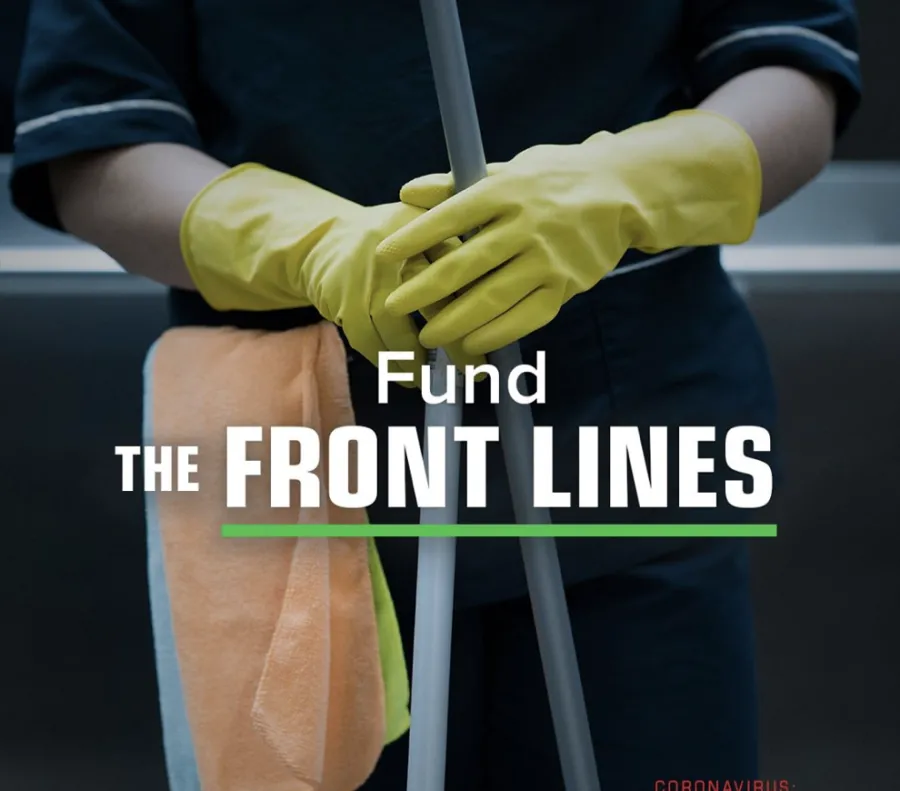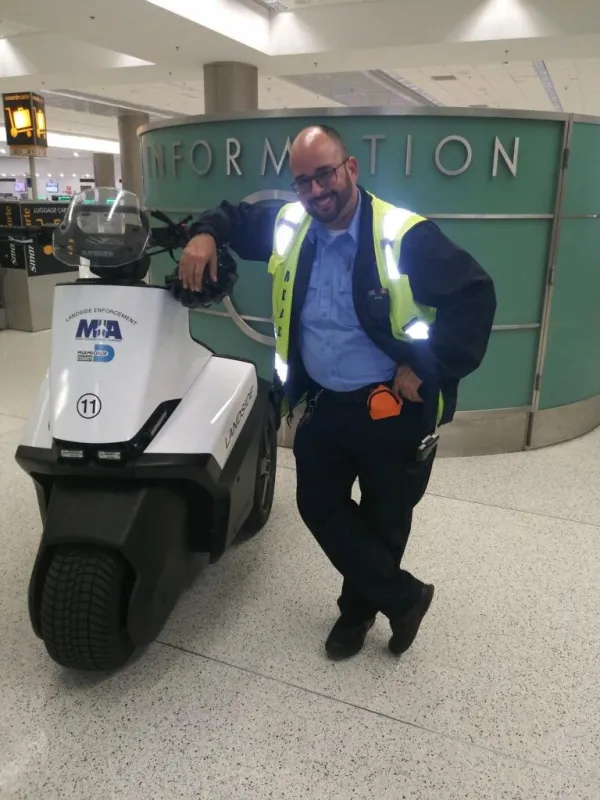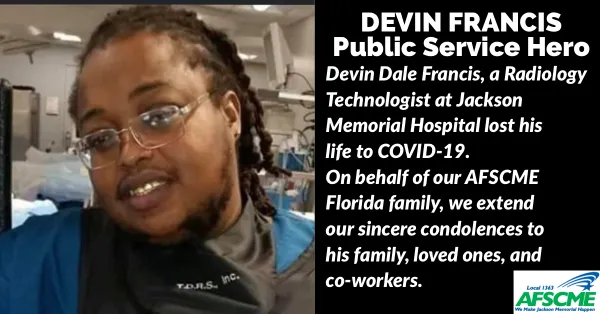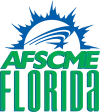AFSCME Florida Heroes Hit Hard By Virus, Continue to Protect Our Communities

As the coronavirus pandemic rages on, AFSCME members across Florida continue to man the front-lines to keep our state functioning and our infrastructure intact during this unprecedented time. As a result, our dedicated essential public service workers put themselves in harm's way each and every day simply by doing their jobs. Hunderds of members of our Union in Florida have been infected with the coronavirus on the front-lines. Here are just a few of their stories:
LOCAL 1963: FLORIDA STATE HOSPITAL (CHATTAHOOCHEE) AND SUNLAND CENTER
For two decades, the dedicated employees at Florida's State Mental Hospitals have tried to convey to lawmakers the perilous nature of the work they do day in and day out. These tireless public servants work directly with individuals found not guilty by reason of insanity or who have been found to be a danger to themselves or to others. Caring for and providing a safe environment for these patients is highly demanding, dangerous, and physically exhausting work during normal times. During the COVID-19 pandemic, this is an Extremely High Risk Job.
Since the pandemic began there have been at least 16 positive cases of residents at Sunland Center. Internal reports among staff have been much higher. Florida's Agency for Persons with Disabilities has reported at least 21 staff members at Sunland Center who have tested positive for COVID 19. At least eight others have been quarantined due to contact at the facility. Another 20 more have been quarantined at other state hospitals.
"This is an absolute travesty," said Tallulah Thomas President of AFSCME Local 1963. "We've had multiple reports of our employees caring for individuals that we did not know were postive for the virus." These staff members were also not issued proper protective equipment to service COVID 19 positive residents and thus put themselves at high risk of contracting the virus.
Local 1542: Dade County Port Authority
When passengers traveling from abroad enter the Miami International Airport, the first people they come in contact with in the United States are the hard working men and women of AFSCME Local 1542. Employees with the Dade County Port Authority direct passengers to customs and security and assist in making sure they have correct documentation to enter our country. "We are the first point of contact for international arrivals" said Tony Eiroa, President of Local 1542. "and for this reason, we were hit hard when the virus first arrived in South Florida."
Since mid-March, at least a dozen members of Local 1542 have tested positive for COVID-19. Tragically, two members have lost their lives to the virus. A third came very close. "It was one of the toughest things I've ever experieced," said Andres Amado, an Operation Officer at the airport who tested positive on April first. "I had stomach pain, a really high fever, and I was throwing up." Amado's case of coronavirus was complicated by a bout with appendicitis which eventually required surgery in early April. "It was very bad, I was in bad shape, but the symptoms appear to have subsided," he said while recovering in quarantine. "I'd like to go back to work. I feel like I'm ready but I keep testing positive." Despite feeling healthy, the Local 1542 member has tested positive for the virus two more times since his surgery.

Local 1363: Jackson Memorial Hospital
From the beginning of the pandemic, employees at Jackson Memorial Hospital have been coming into direct contact with patients who have tested positive for COVID-19 without being given proper protective gear to prevent infection according to AFSCME Local 1363PresidentRene Sanchez. “Our members were being directed to clean rooms and care for COVID positive patients without proper protection,” said Sanchez. “In the midst of this pandemic our front-line workers put their lives at risk unnecessarily.” Management at Jackson Health Systems rationed protective gear during the early days of the pandemic potentially infecting hundreds of staff members. In total, over 300 workers employed by Jackson Health Systems have become infected with the virus.
In the midst of the gravest public health emergency of our time, Jackson Health CEO Carlos Migoya announced mandatory furloughs for hundreds of hospital employees in an effort to make up for financial losses due to the loss of elective surgeries during the pandemic. "It added insult to injury," said Sanchez. The proposed cuts would have reduced employee pay by 40% while only costing managers and executives 10%. Thankfully, with the assistance of Miami-Dade County Commisioners Esteban Bovo and Daniella Levine Cava, and Rebeca Sosa, AFSCME was able to fight off the furloughs...for now.
US Rep. Debbie Mucarsel-Powell also spoke up for Jackson Health workers and pushed for the Hospital to recieve funding from the first CARES Act signed into law March 27th. "I think we need to remember all the workers and staff that are keeping these hospitals running," she said. "They come to work every day knowing they significant health risk.
In early April, Jackson Memorial employee Devin Dale Francis lost his life to COVID-19. Francis was a dedicated Radiology Technologist in the Emergency Department at the hospital as well as a devoted soulmate and father. His daughter turned 11 years old this week. National Pubic Radio aired a tribute to our brother this week. Please take a moment to listen here.

Fund the Frontlines
These are only a few examples of heroic front-line workers from across Florida who put their lives at risk every day to protect us during this pandemic. For years, public service workers have been asked to do more with less. This crisis has exposed how shortsighted austerity measures since the Great Recession have hurt our ability to respond when our communities need help the most. As our state and local budgets reel from this pandemic, It is essential for Congress to take bold steps to expand aid to front-line workers immediately so our essential public service workers have the resources to fight this pandemic and protect our communities.
Now that the U.S. House has passed the HEROES Act, it is time for the Senate to urgently pass a robust aid package that prioritizes aid for states, cities and towns. The HEROES Act passed in the House contained more than $1 trillion of critically needed federal fiscal relief to state and local governments through flexible direct grants, significantly enhanced Medicaid funding, and a strong education State Fiscal Stabilization Fund.
Every day that the Senate delays, the road to economic recovery gets longer because millions of everyday heroes on the front lines who are essential to fighting the pandemic and reopening the economy are being thanked for their service with pink slips.
We can not wait any longer. Act Now!